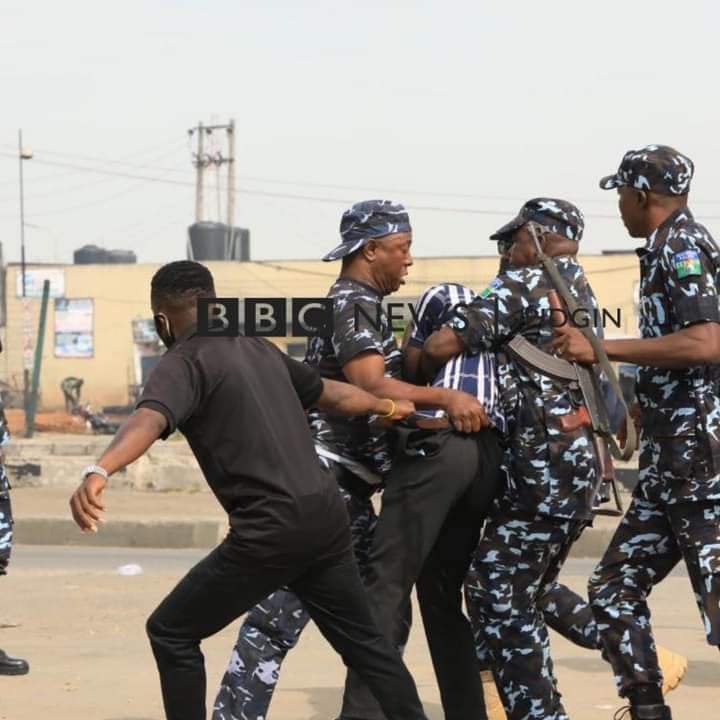It is no longer news that some Nigerians are planning to march against economic hardship under the ‘EndBadGovernance’ protest from August 1 to 10.
The demonstration, which is gaining traction on social media, has been scheduled to be held across all states of the Federation as well as the Federal Capital Territory, Abuja.
However, its organisers have remained largely anonymous as no group has come forward to take responsibility.
The August 1 protest comes on the heels of similar demonstrations in Kenya, from which experts say Nigerians may have drawn inspiration.
Kenyan youths staged massive protests for weeks, forcing President William Ruto’s government to backtrack on tax hikes.
Organisers used social media platforms like X (formerly Twitter) and Instagram to mobilise millions of young Kenyans for protests — a similar strategy deployed on Nigerian social media space.
READ ALSO: Act Fast On Oil Spill Rocking Forcados Area, CSOs Task FG, Delta Govt
In October 2020, Nigeria experienced massive protests nationwide when thousands of young people demonstrated against police brutality.
As the hunger protest movement gains momentum, with thousands of youths set to take action, national and state authorities have warned the organisers to tread softly.
Meanwhile, human rights lawyer, Inibehe Effiong has revealed that participants in the planned nationwide protest would receive free legal representation if arrested and/or charged to court in Lagos State.
Citing the loss of life and property that characterised the #EndSARS protest in the country, many stakeholders, CSOs, bodies and others have pleaded with the organisers to shelve their plan, adding that the issues raised by them were already being addressed.
In the same vein, leaders from the southern and northern parts of the country have also joined the government to oppose the protest.
State governors have also cautioned against the protest, saying it is potentially dangerous.
READ ALSO: DSS Warns Against Planned Nationwide Protest, Identifies Sponsors
As part of moves to placate aggrieved citizens, the President sent a bill to raise the minimum wage from N30,000 to N70,000 to the National Assembly this week. Both chambers of the legislature speedily passed the bill on Tuesday, awaiting the President’s assent.
So far, here is a list of those who are against, or supporting the planned protest as complied by The Nation
AGAINST
Executive Director, Citizens for Development and Education, Ibrahim Waiya
Controversial singer Portable
Christian Council of Nigeria (CCN)
Enugu Innovative Youths
Orji Kalu
Institute for Peace and Conflict Resolution
Northern Ethnic Youth Group Assembly
Kebbi State Government
Lagos State House of Assembly
SDP’s Adewole Adebayo
READ ALSO: Presidency, Obi Trade Words Over Planned Hardship Protest
Citizens for Development and Education (CDE), Ambassador Ibrahim Waiya
Arewa Concerned Citizens Forum
Southern Kaduna People’s Union (SOKAPU)
Confederation of All Progressives Congress (APC) Support Groups (CASG)
Arewa Youth Assembly
South-East Governors’ Forum
Minister of the Federal Capital Territory, Nyesom Wike
Femi Fani-Kayode
Members of the House of Representatives agreed to donate 50 per cent of their salaries for a period of six months.
Ogun State Governor Dapo Abiodun
Coalition of Concerned Civil Society Organizations (CSOs) in Kaduna state
Trade Union Congress of Nigeria (TUC)
Chieftain of the All Progressives Congress, Uche Nwosu
National Council of Traditional Rulers
Governor of Jigawa State, Umar Namadi
National Association of Nigerian Students in Lagos
Self-Reliance for Physically Challenged Traders of Nigeria
Chairman of Tantita Security Services Nigeria Limited, High Chief Government Ekpemupolo (Tompolo)
READ ALSO: Planned Protest: Tinubu Holds Emergency Meeting With Sultan, Ooni, IGP, Others
Rising Up for a United Nigeria (RUN) and Coalition of Civil Society Groups for National Stability and Cohesion
Actor Lege Miami
Door-to-door Youth and Women Initiative for Good Governance
Reno Omokri
Middle Belt Forum, MBF, Kaduna State chapter
Executive Director, Business Development of the Nigerian-Export Import Bank (NEXIM) , Hon Stella Okotete
National Association of Nigerian Students (NANS)
Christian Association of Nigeria (CAN)
170 members of the House of Representatives under the aegis of the “New Dawn Caucus – 10th Assembly”
Jama’atu Nasril Islam
Oba of Benin, Oba Ewuare II
SUPPORTING
Atiku Abubakar
The leadership of the Social Democratic Party led by National Chairman, Shehu Gabam
All Workers Convergence (AWC) led by Comrade Andrew Emelieze
Ayo Adebanjo-led faction of Afenifere
Lagos State Chapter of the Active Citizens Group Nigeria led by the group’s state coordinator, Adamma Ukpabi
Omoyele Sowore
Amnesty International
UNDECIDED
National Youth Council of Nigeria (NYCN) directed its 104 affiliate organizations to remain on standby.
NATION
